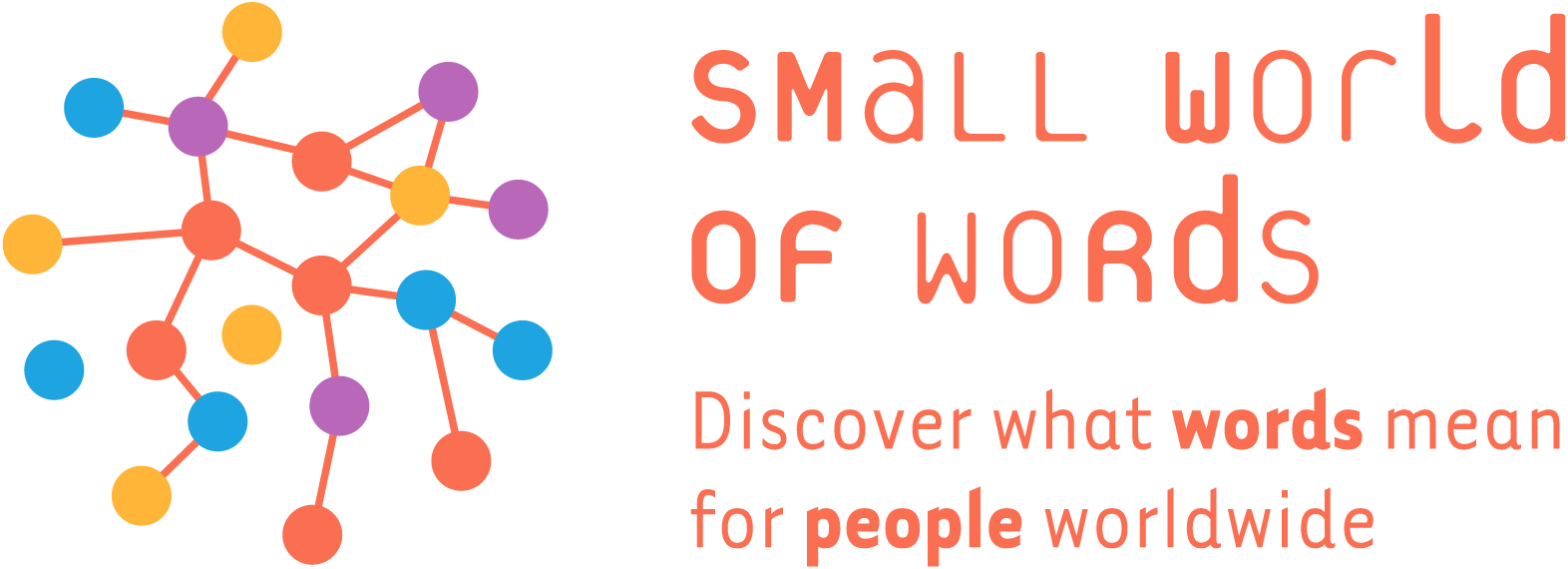The Aging Lexicon

What is the Small World of Words?
The Small World of Words (SWOW) is an international citizen-science project initiated by Simon de Deyne that aims to build a mental dictionary or lexicon in many languages of the world. SWOW asks participants to provide word associations to thousands of words from each language. These word associations allow researchers to obtain an average representation of how words are associated in people’s minds, akin to a mental lexicon. SWOW is now supported by a number of scientists from around the world and currently includes 14 different languages, such as English, Dutch, German, Chinese (Mandarin), Spanish, and Portuguese.
What are participants asked to do?
Participants who visit the online SWOW webpage are asked to type three associations to each of 18 randomly selected words of their native language. The participants of SWOW participate voluntarily and receive no direct compensation for their participation. The word associations are aggregated across participants to obtain a mental lexicon that reflects how words are connected in people’s minds. The more people participate in SWOW, the more accurate this average mental lexicon can be. Over 400 thousand people have already participated and SWOW keeps growing day by day. Want to have a look at the current numbers? Click here
Why is SWOW relevant to understanding the aging lexicon?
Participants in SWOW can provide some basic demographic information, such as age and gender, and this information can help researchers learn about how the mental lexicon changes across the life span, for example, whether specific associations with particular words are different between children, adults, and older adults. Researchers have already used SWOW to learn the structure of word associations changes across the life span and there is still much more to learn! If you are interested in reading more about this topic check out the publications below.
Publications:
Wulff et al. (2019) reviewed recent evidence on how life span changes in size and structure of the mental lexicon impact lexical and semantic cognition. They argue that models of the aging mental lexicon must integrate both ecological and psychological factors and they propose a research framework that distinguishes environmental exposure from cognitive mechanisms of learning, representation, and retrieval of information. They suggest that we need more studies like SWOW to better understand the aging lexicon.
Dubossarky et al. (2017) investigated how the mental lexicon changes over the life span using data from SWOW. They found that associative networks evolve in a nonlinear (U-shaped) fashion over the life span. During early life, the network converges and becomes increasingly structured. Into late life, this pattern reverses but it is unclear whether this is a function of experience or age-related cognitive decline.